I guess you could say I’ve become an activist on behalf of your right not to have to be an activist. –Mike Nayna, documentary filmmaker
Here’s a pretty simple truth that keeps getting harder to believe: you don’t have to be an activist—not for a cause, not for a party, not for anything. Perhaps least of all for your—or anyone’s—identity. Today, white people are increasingly being forced into recognizing themselves as an identity group and are being pushed into a call to activism by a divisive slogan that’s currently spreading like wildfire: white silence is violence.
It’s fair to say this needs both an explanation and some unpacking. The explanation is a little easier. The world seems completely bent right now on forcing everyone to become an activist whether they want to or not. This comes from a variety of places, including the old feminist slogan “the personal is political” and even a branch of thought called Critical Theory that was, until recently, quite obscure. “The personal is political” is obvious in the ways it makes everything—the personal—about politics. Critical Theory, however, is less well-known, but the key relevant idea that developed under its umbrella is complicity.
Critical Theory arose, in the best part of its history, to try to explain how it was that the fascist regimes of the early twentieth century arose and gained power. To be perfectly clear, the reader should know that Critical Theory actually arose specifically to try and explain why communist Utopias hadn’t come to power in their place, and they ultimately blamed free, liberal societies for allowing and enabling the conditions that led to fascist takeovers. What they believed is that everyday, ordinary people are far more complicit in the evils that lead to fascist horrors than they understand, and they wanted to expose and change that problem.
Critical Theory has evolved a great deal since the 1920s, 1930s, and 1940s, when that kind of exploration was both necessary and novel, and rather than gaining perspective on the issue, they have gone the other way. One of the most famous Critical Theorists, Herbert Marcuse, even remarked in a television interview in 1977 that much of what happened in the name of Critical Theory had become dangerously anti-intellectual. Marcuse, it should be noted, was also famous for his idea that being tolerant of the intolerant is a form of complicity with intolerance (and “fascism”), and he advocated a kind of “discriminating” or “repressive tolerance” that answers “intolerant” speech with violence, if necessary, so he’s not totally off the hook here, despite this.
Nevertheless, in 2010, a little known “critical whiteness” educator named Barbara Applebaum published a highly influential book called Being White, Being Good with the primary purpose of laying out how all white people benefit from being white in a “racist” and “white-dominant” society, and therefore all white people are necessarily complicit in “racism,” “white supremacy,” and all the attendant harms of those evils, real and imaginary (when in their genuine, not weirdly abstract definitions).
Applebaum’s book is dense and philosophical and tortures both logic and history into confessing that, yes, all white people must be complicit in white supremacy. She calls this problem “white complicity” and makes a sustained case that all white people are always caught up in it, no matter what they do, so long as “white dominance” is maintained in the system.
Complicity implies moral responsibility. That is, in fact, what complicity means. Applebaum’s objective was to stretch the idea of moral responsibility for what she calls “racism” far from just being an active accomplice or accessory to it. In fact, she explicitly says this understanding of complicity is far too narrow.
She argues even that a very passive or disinterested approach—merely staying silent or neutral while evil takes place around you—is also insufficient. She built her view by extending one that had been outlined by earlier Critical Theorists and other thinkers, including Hannah Arendt most famously, who called the phenomenon “the banality of evil.” Arendt’s work has been pressed into the service of many progressive Critical activists since to claim that when white people aren’t actively opposing some evil they identify in the world, they are tacitly supporting it.
Applebaum argued that any definition of complicity that is sufficient must encompass the extreme position that anyone who “benefits” from evil, however indirectly, is complicit in it and thus bears moral responsibility for it. It is in this extreme understanding of complicity and moral responsibility that the jarring slogan “white silence is violence” has its roots.
Her case begins with the standard Critical Race Theory assumption that “racism is the ordinary state of affairs in our societies” and then works to establish that everybody who isn’t actively fighting this evil (on the Critical Race Theory terms) necessarily supports it. Neutrality is specifically twisted into a form of support for racism and even white supremacy. One could make a cogent case that this might make sense under the real, overt, and rampant racism and white supremacy of decades and centuries past, of course, but that’s not what we face in the current age, so it isn’t what Applebaum or other “critical whiteness” and “Critical Race Theory” scholar-activists mean. They have very specialized technical definitions that most people wouldn’t recognize and that were invented specifically to push these extremist views.
Applebaum also helps prescribe the answer to this problem of moral responsibility, with her prescription matching that of most other “critical whiteness” and “Critical Race Theory” advocates: all people who benefit from white privilege must take up a lifelong commitment to vigorous “anti-racism” activism that’s outlined on their Critical Race Theory terms. Anything short of this full commitment to their terms is defined as white complicity, which confers moral responsibility for all of the harms and evils of racism past and present and thus can constitute a firing offense now that these views are mainsteaming.
Of note, the people who benefit from white privilege includes all white people and all non-white people who are “white adjacent” or who “act white” and thus also benefit from it. More than that, no matter how much “anti-racism” activism white people do, unless the system is fundamentally torn down and remade without “white dominance,” they remain complicit and thus morally responsible to keep doing more activism. (This feature of “anti-racism” activism therefore bears unmistakable similarities to cult indoctrination programs.)
So, we can now come to the unpacking. Is it true that “white silence is violence”? The answer is obviously, “well, it could be, depending on the circumstances, but overwhelmingly not.” The facts of the matter are that racism is still present in our societies, but they’ve also never been lower and less likely to determine the fates of people effected by them than in all of history—with the unintended consequences of the present hyper-intense focus on race and racism excepted from this claim. Though ridiculously (and I mean that literally) incendiary to say so, this fact also applies to police and policing, though it is increasingly clear that some reforms and changes on this front are undeniably necessary. In other words, not only is white silence not violence here, to the degree that it’s even white complicity, it’s complicity in something that, while imperfect, is very close to the least bad it’s ever been in the history of our societies. It isn’t morally wrong to tell the truth about this.
The only question that remains is why the slogan reads “white silence is violence.” This actually requires more unpacking than I have space for here, but the short answers are two. First, in this extreme view of complicity, if violence arises in any way in a “system,” say by police use of force, then being “complicit” by not vigorously and fighting it on every level, as outlined by a specific program with very narrow and authoritarian terms, is fraudulently billed as tantamount to engaging in that violence yourself. (Thanks, Herbert Marcuse.) This is plainly preposterous and just a means of playing upon people’s guilt in a manipulative way.
Second, in the ideological worldview from which this slogan arises, “violence” is not merely understood literally but through “lived experience” of the “realities” of racism, which means the stories Critical Race Theory tells about it. Thus, this “violence” is frequently a claim that something makes someone feel bad, scared, or exhausted, so long as the relevant “systemic power dynamics” are involved. This can even extend to the ways that “power dynamics” and “systems of racism” produce different outcomes for different identity groups.
When this extreme and poor interpretation of “violence,” which is almost impossible to square with reality, is combined with this extreme interpretation of “complicity,” you can arrive at a slogan like “white silence is violence.” Obviously, that slogan would have carried far more weight in 1960, or especially 1860, than it does in 2020, but we’re allowed to live in the now without being called to repent for that.
In conclusion, “white silence” isn’t really violence in almost any realistic sense; it’s mostly just an attempt at compelled speech. The slogan “white silence is violence” is therefore best understood as an emotional manipulation by people who want you to understand the world in their particular way and to push their particular form of activism, which most of them directly benefit from, no matter what the costs to the rest of us. You don’t have to feel bullied by it, and you don’t have to be an activist, especially not on someone else’s extremely exaggerated terms.


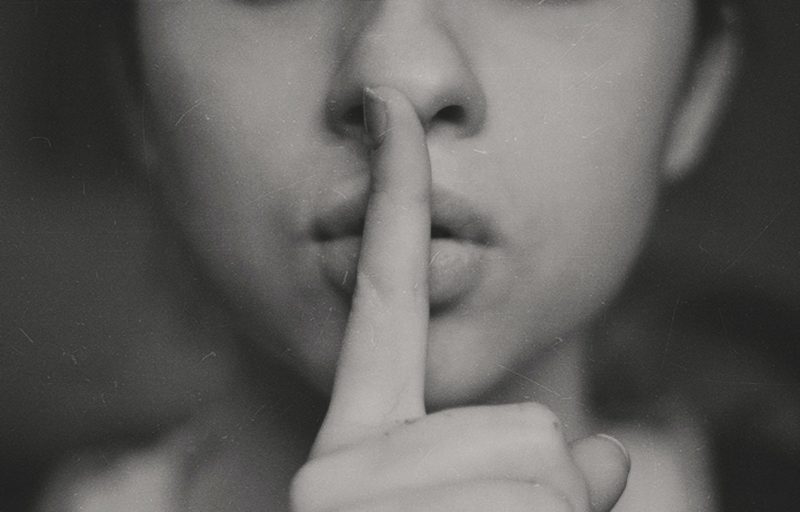
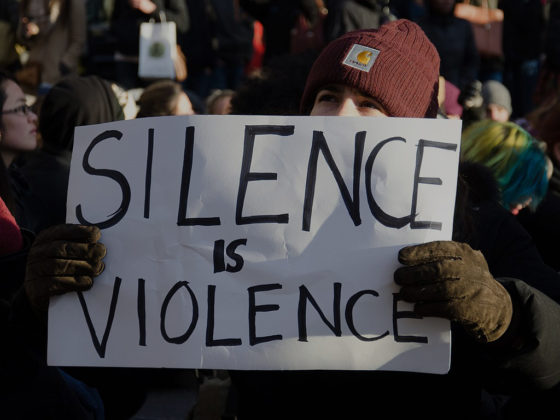
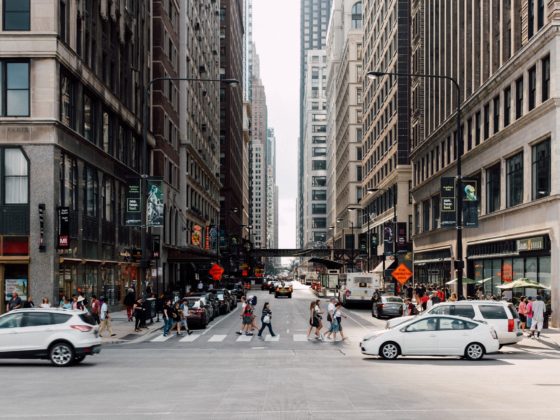
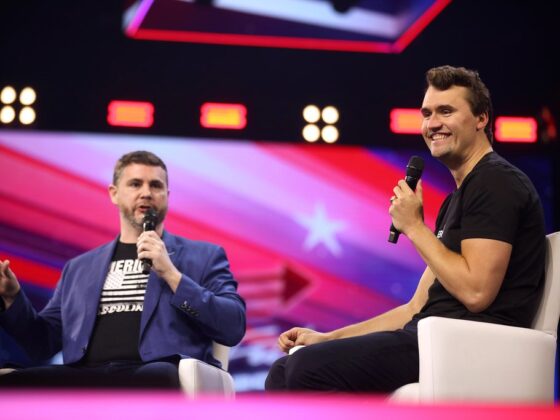
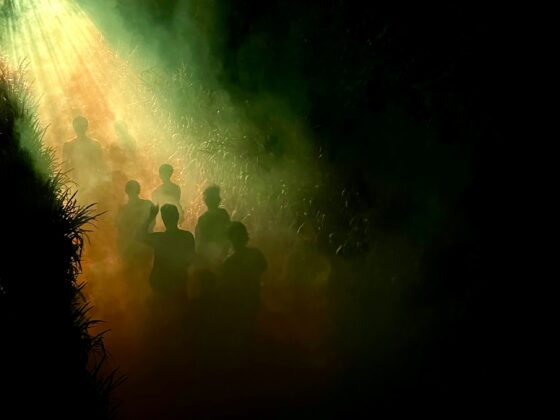

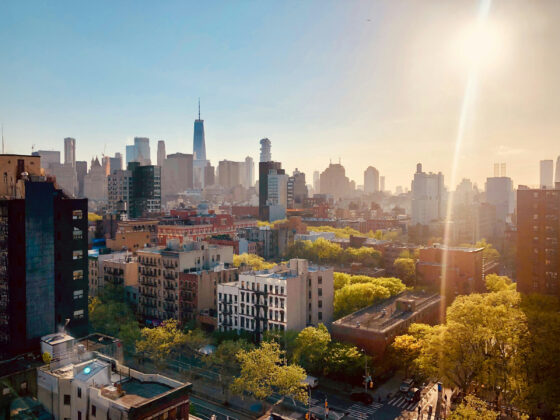
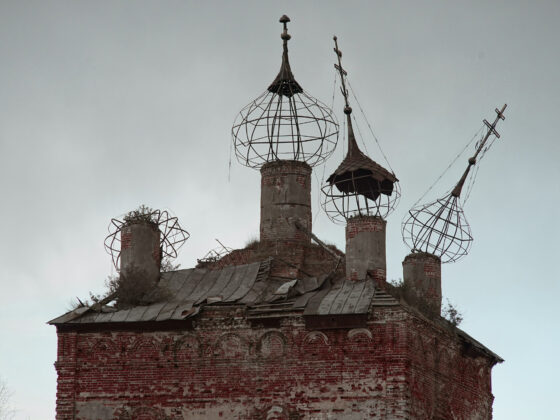


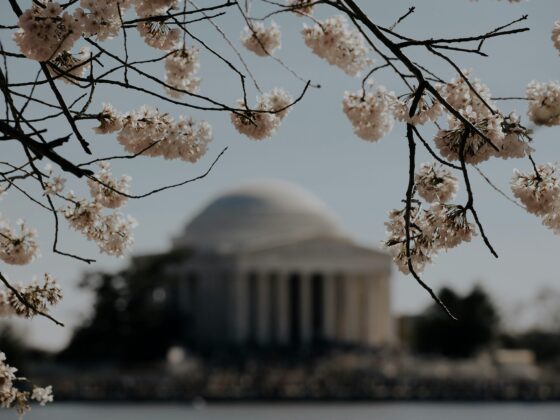
38 comments
James, can you make a bullet video/podcast of this?
I have found that telling activists that I am a psychopath who is incapable of feeling guilty and could remove a kidney from them for my dinner then sleep like a baby tends to have the required effect.
I protest word salads, I will not be silent anymore!!
What about a slightly different angle on the whole notion of silence is violence?
Can we agree that self defense or defense on behalf of the innocent against violence is valid?
What mitigates the resort to actual violent self defense? (Perhaps the level of violation of the innocent?)
1. Many Anti Abortion people believe that abortion is the taking of an innocent human life. Read that last part again – killing of innocents. Yet, very few in the pro life movement and none of the leaders have taken up a call to arms against pro choice groups let alone providers of abortion. Is their failure to take up arms the same as silence is violence?
2. The US has been involved in the near destruction of the Houthis in Yemen on behalf of Saudi Arabia. Fourteen million people are in near starvation levels of existence due to the US government involvement. The war could not continue if the US pulled out. There is exactly zero chance of danger to our country from the Houthis. It would take the stroke of a pen by the President to stop this destruction. Talk about silence being violence. If even a fraction of the noise from the social justice left was generated on behalf of this cause, it could be stopped immediately. So this lack of outcry by any on the social justice left makes me wonder if there is some other agenda being pursued with the “white silence is violence” message.
The difference is whether the oppression is real or imagined.
There is a state worse than blindness, and that is seeing things that aren’t there. That is not a natural state of affairs, you have to be “educated” into it. Often by people who have an agenda that will benefit themselves (not necessarily the alleged victims).
“The world seems completely bent right now on forcing everyone to become an activist whether they want to or not. This comes from a variety of places, including the old feminist slogan “the personal is political” and even a branch of thought called Critical Theory that was, until recently, quite obscure. “The personal is political” is obvious in the ways it makes everything—the personal—about politics. Critical Theory, however, is less well-known, but the key relevant idea that developed under its umbrella is complicity.”
Or bent on making people choose between 2 options while ignoring all the other options. It’s as if the supporters of vanilla ice cream were screaming in your face to either choose vanilla or be chocolate, when the whole time, you actually prefer strawberry or pistachio. Maybe you’ve never even tasted vanilla, so how can you support it? People like to know WHAT they are supporting before they put their name to a thing. Some people may support chocolate/vanilla twist, but not vanilla. Maybe we like SOME of the flavour of vanilla but prefer to add a bit of the flavour of chocolate to it? Maybe we prefer mint-chocolate? Or vanilla-strawberry? Forcing people to choose just cancels out the choice. If there is no freedom in the choice, then the choice is worth nothing. If you are looking for approval by forcing people to approve of you – that’s not approval. Approval is not approval if not given freely.
“If you choose to be an onlooker, fine, but don’t actively oppose the people trying to step up, intervene, and make a difference.”
Yelling obscenities in my face at a restaurant because I refuse to “speak his/her name,” does not make me an onlooker. It also does not allow me to support your cause.
I am Jewish, and last year visited the Auschwitz and Birkenau concentration camps in Poland. Silence, history, ignorance, and hatred lead to genocide and all the horrors of holocaust. People were exterminated because of their religion, nationality, or sexual identity by white “Aryan” Nazi Germans.
The United States in 2020 is Germany in the 1930s. The BLM movement and “white silence equals violence” slogan gives me some hope.
I would really like to hear your explanation on how they are similar. I think one could easily argue that BLM itself is using tactics similar to Hitler’s brown shirts.
I am Jewish too and if you think that 2020 USA is the same as 1930s Germany then you have a very strange outlook indeed. In Germany 6 million Jews were brutally and systematically murdered. It was a genocide. What is happening in the US right now is not a genocide. There are injustices, there is racism, but this is not the same in any way, shape or form, as murdering 6 million people. What is happening in the US right now is even not on the same level as the murders and arrests that happened in Russia under Stalin. The main difference is that the USA still fundamentally remains a democratic country, albeit with flaws, but it is prepared to work to improve them, and it is not trying to murder a large amount of its’ population because it is of a different race or political persuasion. Slogans like ‘silence is violence’ are no different to slogans like ‘war is peace’ from 1984 or from communist or fascist propaganda slogans used in totalitarian regimes in the 20th century. The US should be afraid of these slogans, because these are the slogans that lead to totalitarianism.
I highly suspect that you are one of those anti-Semites who impersonate Jews online. you have a very stereotypical Jewish name and it’s hard for me to imagine even the worst progressive saying what you said in your last paragraph. let alone a Jew who has any regard to the holocaust .
Several onlookers stood there and watched for 8+ minutes while George Floyd was murdered. – Why didn’t THEY do something?
The number of blacks killed by police officers was higher during Obama’s Presidency. – WHERE was this “movement” back then?
If silence is considered consent in politics, then why isn’t silence considered consent in sexual situations? He/she/they can say no or leave.
Tony Timpa died the same way as George Floyd and he didn’t get a state funeral.
Which stories get elevated to “news” and which don’t, has more to do with political agenda and less with reality.
Gosh quite a lot of words! Quite a lot of of words to say;
‘I don’t want to have to rethink the impact of injustices that don’t affect me, and since they don’t really affect me, they are not that bad, and now that I say, they are not that bad, I can say ‘objectively’ that everyone who says otherwise is an extremist. It’s science and logic’
Let me reference the video of George Floyd, and remind everyone that this is not an isolated incident. In the video; a man was murdered by a police officer, with the assistance of 3 other officers. All the while, a group of onlookers stood and watched for 8+ minutes.
No one blames the onlookers, but also no one wants to be the onlookers. They sat and watched while a terrible injustice occurred right in front of them, and none of them did anything to stop it. This is why we protest. We are tired of being onlookers.
If you choose to be an onlooker, fine, but don’t actively oppose the people trying to step up, intervene, and make a difference.
At the time, it was not at all obvious that a murder was taking place. It’s still not obvious. St. Floyd probably died of a drug overdose.
Werner–re: “…the only people who would interpret ‘White silence is violence’ to be bullying or intimidation are those individuals so fragile and divorced from any level of human empathy that I don’t think anyone involved in anti-racist work would want their perfunctory presence.”
I agree that it’s not bullying or intimidation. But it does read as an attempt to… guilt trip? After all, many white people (liberals) think that just about the worst thing one of us could do would be to commit an act of violence against a Black person. The slogan says that if they are not protesting, they are like people committing actual hate crimes.
It’s possible you read the slogan differently from how many of its listeners hear it though, since you say that anyone who feels bullied or intimidated by the slogan must lack empathy–what do you think an empathic person hears in that slogan? What is its empathetic interpretation?
“Signed,
White Male.”
How objective. But of course we shouldn’t expect an opinion piece to be objective.
Found the racist here. The racist is over here^ look everybody, it’s a racist. See how reality works? You’ve turned into what you so desperately profuse to hate. Thou protests too much. Also stupid if you can’t see it, so you have that going for you too. 🤡
Where is the racist? What are you referring to?
I think the only people who would interpret “White silence is violence” to be bullying or intimidation are those individuals so fragile and divorced from any level of human empathy that I don’t think anyone involved in anti-racist work would want their perfunctory presence.
I appreciate this blog for trying to engage with actual written works, but find James’ posts use similarly non-falsifiable and hysterical arguments that pander to an audience who feels isolated, confused and threatened by what is perceived as an attack to their identity and changing set of rules. Thinking about why these people feel alienated from critiques of whiteness is far more interesting and potentially a far better critique of woke culture than James’ critiques, which is providing pseudo-intellectual “legitimacy” for what is undeniably a racist agenda (James, even if you yourself pretend to not be racist, you must know that these posts are being shared on white supremacist groups? Or perhaps you know this and approve).
A lot of the people leading anti-racist work do not have university degrees and aren’t schooled in ‘critical justice studies’, but are people speaking out against their experiences. It is laughable to say that racism is over or to say that perceptions of racism based on “experiences” are the incorrect metric to define and measure racism, when racism, like race itself, is discursive, relational, in flux, subjective. Do you want a black person who protests racism to qualify that the racism they are experiencing is better now in 2020 than their ancestors in 1800? I am sorry, James, but that is hilarious (and won’t fit on the banner).
Keep reading, Werner.
I found this article incredibly balanced – So far I was only able to find articles from the alt-left defending their racist attitudes but none that point out the flaws of the current left wing activism. If you think there are no flaws I would be very worried. All activism has flaws and the fact that someone with white skin is being bullied into not challenging these flaws is scary as hell. Of course, nobody can literally shut me up if I choose to say something anonymously. But if I posted this on Twitter with my name, I might as well resign from my job as now even companies don’t accept anything less but towing the party line and anything deviating from the current status quo (as much as people moan about the oppression of the left it’s evidently not true when it comes to business and the media – two of the biggest powers at this moment in time – you get a heck of a lot of support – that doesn’t mean that I am right wing as if I was against everything they say – it’s not an all or nothing situation). One of the most important rules in my life is to be the change you want to see and to treat everyone the way you want to be treated. That means that in my personal dealings with people of color I support them by supporting their business, supporting them as my friends and defend them when confronted with racism if it’s something in my control. I grew up in a very multi-cultural neighborhood and always enjoyed the cultural exchange and the friendships I was able to develop. One day I woke up and was told that I was a racist because I benefit from white supremacy somehow by default. I felt incredibly guilty for days and tried to read articles on anti-racism but something just didn’t sit right with me. And then I realized that it was this almost cult-like bullying behavior of the movement, which even many of my (colored) friends (never thought I saw the need to mention that, up until now they were merely my friends) noticed, that really made me feel uncomfortable. I don’t get involved in politics for very personal reasons – in fact you could say I am a conscientious objector when it comes to politics largely for religious reasons (I am not going into this any more, but lets say for me it would be like a Jew being forced to eat a pork sandwich). Which is why I have no desire to get involved to that level. In my personal life I am involved in voluntary work of all sorts and I wouldn’t even have the energy or time to get involved to that degree, even if I wanted to. It feels like I am being made to feel guilty for the non-action of others (by that I mean people who never cared about their neighbor or voluntary work) when in fact all my life I have worked incredibly hard to display actions that made people of all walks of life feel welcome – albeit not perfectly, we are all a work in progress. Also, shouldn’t it be up to the person of color to decide whether they think an individual displays racist behavior? Would any black person want to be friends with a racist? So far nobody in my circle of friends has cancelled me and they know my feelings on this. The problem with identity politics of all sorts is that it creates bubbles and enemies where there were none before. In fact this kind of activism will eventually backfire and the most racist people will become even more racist and many that weren’t racist to begin with might end up supporting a wrong cause. I am German and most of my history classes in school were all about WW2 and how we should never, ever do this again. That’s how we have come known to be a nation full of collective guilt. But even though we kept remembering the atrocities that were committed every single year and school kids were constantly reminded to not be racist, nobody was bullied into following a certain ideology. We were lead by example, being kindly reminded not to fall for radical ideologies again. And it worked. Of course, racism still existed. I am not denying that. But it wasn’t something most people would have voted for again as they did in the 1930’s. That was up until recently. And the only thing that had changed was the political landscape. I don’t want racism to return, I want it to die once and for all but the radicalism by the left is going to cause the exact opposite (paradoxically) and that’s what I am really afraid of. Please read up on human psychology, it will show you that you cannot bully people into changing their values.
There is something about the idea of complicity via (presumed) inactivity that puts me in mind of the early Islamist claim that citizens were legitimate targets of terrorist action on the grounds that said citizens live in a democracy and do not seem to be doing anything to deter their leaders from their preferred foreign policies; the ‘silence’ of the citizens, as far as Islamists were concerned, should be taken as their approval of the actions of their government, and consequently as enabling anti-Islamic politics. Also, the error of this claim is similar to the error of the claim that the (again presumed) inactivity of white people is tantamount to an expression of support for a supposedly racist society.
The mistake I often find, as far as the more hardline left is concerned, is that only large-scale acts of resistance that explicitly, clearly and unequivocally demonstrate an anti-oppression viewpoint are acceptable as legitimate; smaller, everyday acts are somehow exempt from this. The fact that white employees invite black employees to work drinks, or that white people and black people attend (e.g.) martial arts classes together, or are on sports teams together, seems not to count as an expression of anti-racism. Put simply, for the social justice movement only anti-racism, rather than mere non-racism, is acceptable, but that suggests that the only acceptable society is one in which black people (and people of any minority group) are constantly reminded of their history and status and compelled to determine their identity in these terms (look at how black people who don’t toe the SJM line are treated; they’re like cult members who have turned against the group). The liberal project, at least throughout my lifetime (I’m 39) has been to try and make society non-racist, rather than anti-racist; to try and enable people to experience each other in all our differences, not mere skin colour. To me, SJM (and its various splinter groups) are trying to resuscitate the idea of race that modern liberalism worked so hard to render largely insignificant.
I agree with you. Race is not an element of every relationship. Nonracism means that one makes friends, or enemies, based on things other than race. Race is unimportant in choosing one’s associates, voting for political candidates, or most other activities in life. Race is only a part of a person’s identity, and not the most important.
I came across your site from Glenn Beck’s show. Keep up the good work.
Bottom line : You don’t get to tell me where I stand on ANYTHING. I and ONLY I, speak for myself. You do not. I don’t care if you’re black or you share my skin color. You do not get to tell me what I think or where I stand on anything. Period. That is my individual right as a being and it will be hell or high water before I ever bend the knee because anyone decides to try to tell me that if I am “silent” then I am “complicit”. Sorry kiddos, your fallacy don’t work with me. I don’t deal in your communist-style political extremes and I have no horse in this race of yours.
All you got is words and they’re not swaying me. I am White, I am proud to be White and I will never apologize, never bend the knee for being White. I was born like this and you are not going to ever make me feel like I ‘owe’ you anything, like I ever was ‘responsible’ for anything anyone else did to you. We are all, bottom line, individuals, in charge of our actions and own destiny. I am guilt-free and try as you might, you will not intimidate me and guilt trip me into feeling bad for something I have never done. I am not ‘complicit’, I never was, never will be. You don’t get to put words in MY mouth because I won’t submit to your commie tactics of thought extremes/black-and-white thinking/splitting, and then proceed to lecture ME about the words YOU put there.
No. Never. Period.
DareToAskWhy: not speaking for James, but the “zero” came with my generation – the 70’s. Probably the first generation raised completely after the civil rights movements of the 60s where we were taught the horrors of slavery and the plight of native Americans. We were truly, brought up on the idea of “content of character.” Perhaps I’m not intellectual enough to understand your point about the finances and equity but, the formula is plainly simple. One does not need to be you, or Lindsay to prescribe the cure to racial inequity. Bad shit happens to a lot of people, and ascribing it to a “system” is generally folly. So, the cure: stay in school, get a job, father your children, and stay clear of those will ill intent. Easy. So easy, a white person could do it. Should be easy for anyone else, too.
I like this easy so easy a white person can so it
I’ve consumed much of your work in the last few days. This is the first one I reject, and the reason I reject it is because I think you have undervalued the continuing direct pecuniary injustices that continue. I mean OK… you say the slogan may have more relevance in 1860, so its good to see you feel some horror when you envision the realities of slavery in that year. So if this slogan had subjective relevance for you at THAT level of violence and injustice, but has none today, at point in history did your subjective relevance meter hit “zero, problem solved, at least enough for me to be silent without being complicit” ? I mean, the rate at which money is growing in your retirement is connected to the financial system which is connected to patterns of home ownership and finance that directly effect people of color. Greater economic equality could move more families out of poverty and provide for more positive outcomes for more people. So sticking with “black people” due to the implied slavery reference, please shed light where you draw the subjective line on complicity between 1860s slavery and economic disadvantages in these communities today?
PS I also think everyone has a vote. What you do with your vote, and later your elected reps, creates police policy. Everyone COULD lobby for whatever police policy they want. If you are not doing it, that means other things are more important. If you spend your time drinking, or watching all upteen seasons of Star Trek on Netflix but never talk to your mayor or state rep about these issues, does that not mean you are OK with police policies as written?
Daretoaskwhy… Historical moments are overturned at variable rates. In Britain there are families descended directly from the Norman conquest invaders that are still, some members of them, at the top of society – Howards, Beauchamps.. But then, genetic and economic mixing means all Britons are their descendents. The inheritance, of the dispossession of the Saxons, both is and isn’t there. And also, talent will out – the top Saxon families, sent to the bottom of the pile, were intermarrying with the Normans before long.
And new great families are rising, and falling, all the time – Rockefellers, Trumps..
I would say that proximate events that played out big over a couple of generations, beat distant ones as explanations – the Great Society, the Welfare State upended the opportunity for good or bad family cultures to yield their just rewards.
But you’re forgetting that a lot of people are passive even about things that directly concern their own lives. I live in a community that has no problem with police brutality, for example (I’m not in the US), but nonetheless decisions, large and small, are made all the time that make people’s lives harder and their environments worse. Most people grumble to their friends and neighbours, perhaps sign a petition if one is shoved in their faces, but that’s the extent of their activism. Even if nuclear waste were dumped on their backyards, most people would go ‘oh my goodness, this is horrible’ and then go on with their lives.
You might say that if people can’t be bothered to do anything to change their communities, they deserve the communities they get, and you wouldn’t be wrong. But that still doesn’t change the fact that not everyone is cut out to be an activist. Only a certain percentage of people is interested in, or has the energy and capacity for, the ‘doing’. If you can get the rest to vote for them, that’s already a success.
On top of that, even the activists by nature can’t possibly be activists about every single good cause they come across, and it’s intellectually dishonest to suggest that by not picking up a cause they are *against* it. If someone is campaigning for human rights in a foreign country and doesn’t do anything about the hypothetical nuclear waste on my backyard, that doesn’t mean they approve of the nuclear waste on my backyard. Likewise, if someone focuses on campaigning against the nuclear waste, that doesn’t mean human rights in foreign countries are a matter of complete indifference to them.
Aren’t people allowed to choose where to focus their energies?
That’s something I see a lot of, these days: ‘I’ve seen you post about causes X, Y, and Z before, but you don’t post about *my* cause. Why do you hate my cause?’ Which ignores the fact that the person hasn’t posted about causes A, B, C, D, E, F, G and H, either.
I think you’d first have to show that economic inequality between whites and blacks is due in large part to systemic racism. There’s no doubt that black families affected by slavery, and by things like redlining last century, haven’t had the same opportunity as white families have to accumulate intergenerational wealth. But beyond paying reparations (which is arguably infeasible), then what is there to actively and continuously do other than wait the requisite amount of time for the economic disparity to shrink as we become further and further removed from racist policies? That ties into James’s point that holding present whites responsible for past grievances, and being asked to continually atone for them, is not virtuous. Now, if you’re arguing that there are current policies in place that discriminate by race then that’s a different story, but that’s your argument to make.
“…effected by them than in all of history”…you mean “affected”.
If you were to continue unpacking how this became so popular, would Haslam’s idea of “concept creep” be included?
I came across your website from the Glenn Beck show. That interview was enlightening. Thank you for your honesty and bravery by intellectually arguing against the anit-intellectaul mob movement in our universities/media/Hollywood/corporations.
I listened to Brett Weinstein on Joe Rogan yesterday. He is also sounding the alarm of the very real dangers the current cult of wokeness. They are dead serious and extremely dangerous, as proferssor Weinstein knows all to well.
I am forwarding your articles and website to all I know.
Well, if anyone says to me that silence is violence, I will say to them, yep, I think you are correct, and that is why I speak up, and am an activist against this pro – trans insanity that is starting to destroy women’s sports, and put women who should be safe in women’s spaces at risk for molestation, and rape.